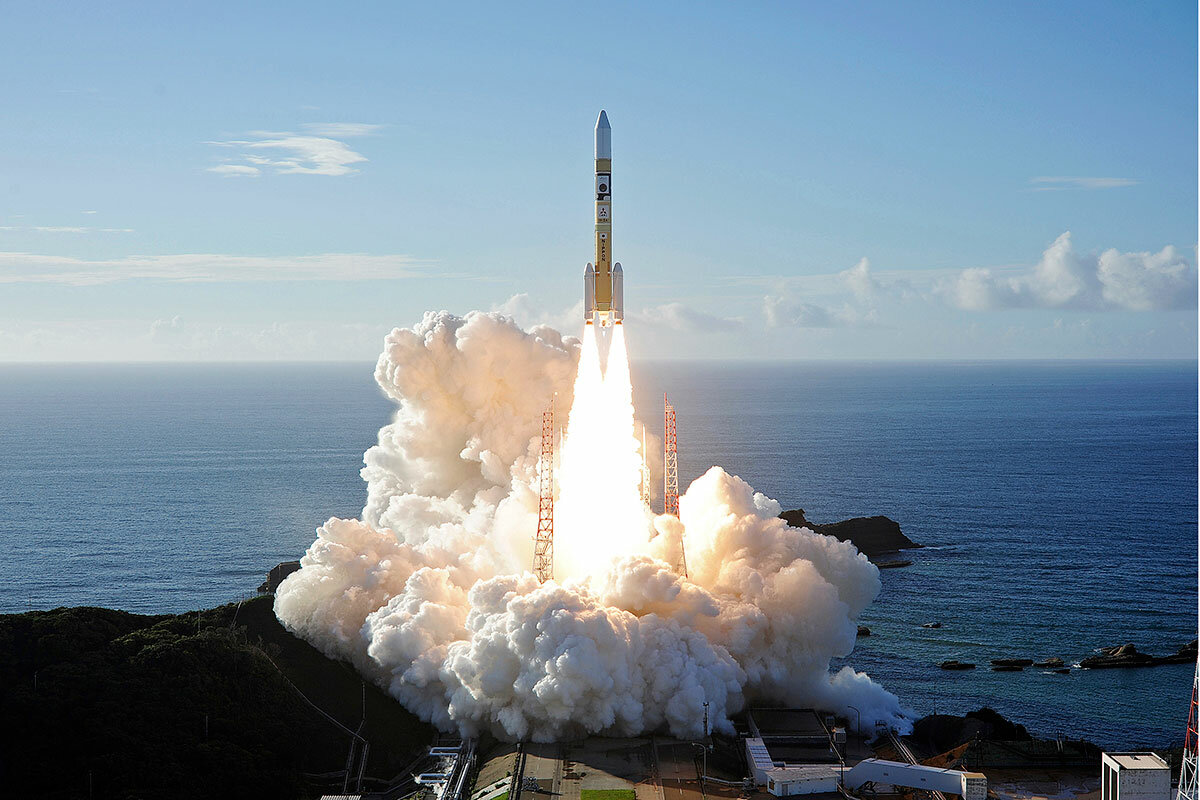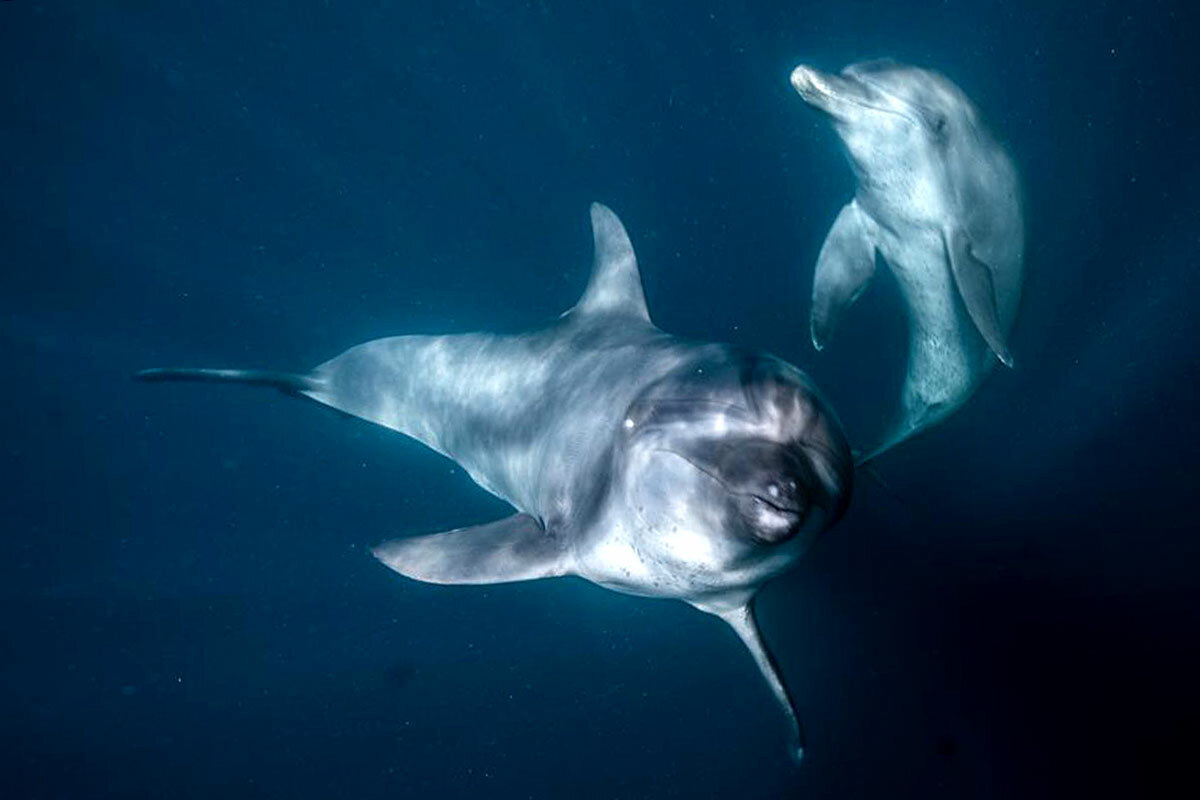Progress watch: Where dolphins get a second chance at life
1. United States
Vermont is tackling a “throwaway culture” by banning food waste in trash. The Food Scrap Ban is the country’s first statewide ban on food waste – an ambitious move that lawmakers say is necessary to achieve the state’s goal of diverting 50% of all waste away from landfills. Officials have found that roughly 20% of residents’ trash is food waste, which is a significant source of methane, a powerful greenhouse gas. The new legislation is designed to provide more opportunities for drop-off and curbside collection, resources for at-home composting, and support for food rescue and donation efforts. The law came into effect in July, along with new regulations limiting single-use plastics and plastic foam.
Fast Company, Burlington Free Press
Why We Wrote This
This is more than feel-good news – it's where the world is making concrete progress. A roundup of positive stories to inspire you.
2. Sudan
The Sudanese government has taken a “great first step” toward improving its human rights record with wide-reaching legal reforms, activists say. The imposition of strict Islamist laws in the early 1980s was a major catalyst for Sudan’s long-running civil war, but now, after more than 30 years and the ousting of former President Omar al-Bashir, Sudan is relaxing its most conservative rules. Under the revised laws, women no longer need a male relative’s permission to travel with their children. The country has also decriminalized apostasy, or the act of renouncing one’s faith – in this case Islam – an act previously punishable by death. Gay sex will no longer be punished by flogging or execution, but still risks prison terms ranging from five years to life.
3. India
The number of undernourished people in India has declined by 60 million since 2004, according to the United Nations. A new U.N. report presents India as a countertrend to growing hunger worldwide, along with similar improvements in China.
Both shifts are attributed to economic growth, reduced inequality, and improved access to basic services, such as supermarkets in India’s rural areas. Some say India’s figures are a sign that government efforts to combat starvation, including school lunch programs, are gradually bearing fruit. The prevalence of undernourishment in the general population went from 21.7% in 2004-06 to 14% in 2017-19. Stunting in children under 5 years old also declined from 47.8% in 2012 to 34.7% in 2019.
4. United Arab Emirates
The launch of the United Arab Emirates’ Amal spacecraft marks the first interplanetary mission of the Arab world, once a hub of mathematical and scientific innovation. Amal, meaning “hope,” is expected to reach Mars in February, and will start transmitting data later that year. Emirati scientists say the atmospheric observations will be available to the international scientific community.
The UAE is a newcomer in space development, but the wealthy Gulf nation has already launched three observation satellites into Earth’s orbit, and sent its first astronaut to the International Space Station in late September. To build the Amal spacecraft, the Emiratis partnered with researchers from several U.S. universities and used Japan’s launching services.
5. Indonesia
The Bali Dolphin Sanctuary is helping rehabilitate previously captive dolphins, potentially offering a model for similar efforts around the globe. More than 3,000 dolphins are in captivity across 336 entertainment venues worldwide, according to a 2019 report by World Animal Protection. But returning dolphins to the wild is no simple task. Successful rehabilitation hinges on the animals’ ability to catch food and relearn other skills they lost in captivity, including the use of sonar to navigate the vast ocean and communicate with other dolphins.
To address these challenges, the Dolphin Project – a charity run by dolphin-trainer-turned-activist Ric O’Barry – has partnered with the Bali government and animal rights groups to open what they describe as the world’s first permanent rehabilitation center. Dolphins unable to make the transition can live out their retirement in the sanctuary. Mr. O’Barry says the Bali center is a model that can be replicated in other places where dolphinariums have closed down.
Reuters, World Animal Protection
6. Australia
Australia appointed Benson Saulo as the country’s first Indigenous consul-general. In his post in the United States, he will be tasked with strengthening the U.S.-Australia relationship. Mr. Saulo has roots in the Wemba Wemba, Jardwadjali, and Gunditjmara nations of western Victoria, and will relocate to Houston at the end of the year. The historic appointment comes as Black Lives Matter protests help shed light on Indigenous rights movements in Australia and around the world.
“Being the first Aboriginal person to hold the position of an Australian consul-general comes with a huge weight of responsibility but then also a sense of achievement,” Mr. Saulo said. He’s looking forward to “being able to share my culture in the U.S. and connect with other Indigenous people and highlight ... the global Indigenous economy.”








